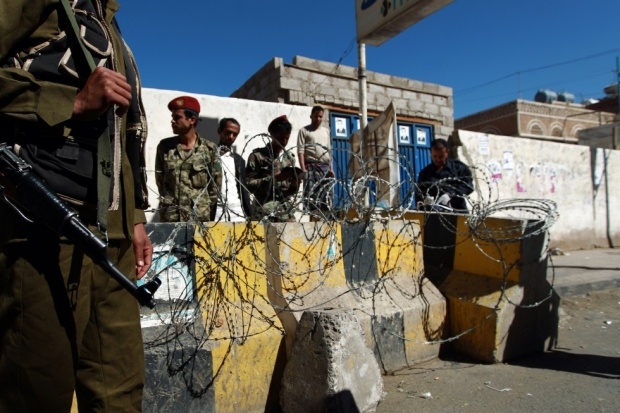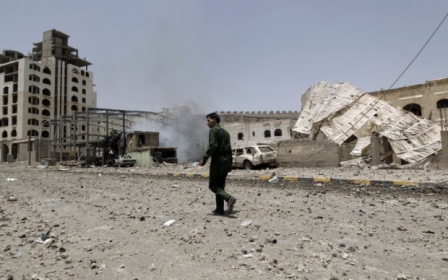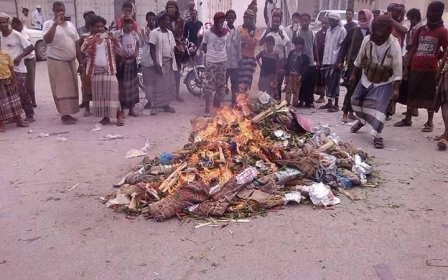Fresh Yemen bomb attack blamed on al-Qaeda kills 9 soldiers

A suicide bomber rammed an explosives-packed car into a Yemeni army checkpoint on Friday killing nine soldiers, a military source said, blaming al-Qaeda for the attack.
Locals reported that civilians were among up to 40 people injured in the attack.
The attack was mounted near the city of Qoton in southeastern Yemen's vast desert province of Hadramawt, where al-Qaeda in the Arabian Peninsula (AQAP) principally operates.
However, the group, frequently the target of US drone strikes, had at the time of publication not officially claimed responsibility for the attack.
The military source said the dead soldiers were members of an army division loyal to exiled President Abd Rabbuh Mansour Hadi.
Hadi was forced out of the country after Houthi rebels last year seized the capital Sanaa and challenged the government's authority.
In March, a Saudi-led coalition launched an air campaign against the Houthis and allied forces loyal to former president Ali Abdullah Saleh in a bid to restore the authority of Hadi, who has taken refuge in Riyadh.
The Houthis and AQAP are sworn enemies, frequently engaging in bloody armed clashes during much of last year.
However, both have also found themselves in direct conflict with troops loyal to exiled president Hadi.
AQAP, considered by Washington to be the extremist network's most dangerous franchise, announced the death in June of its Yemen commander, Nasir al-Wuhayshi, in a US drone strike.
The group has taken advantage of the chaos gripping Yemen to make territorial gains in the south, including the seizure of Mukalla, capital of Hadramawt province.
Mukalla, a strategic coastal town, has been under AQAP control since April – the following month the militants attempted to implement their version of Islamic law by banning qat, the addictive plant chewed daily by millions of Yemenis across the country.
On Friday, people reportedly gathered in one of the town’s squares to watch men accused of drinking alcohol being publicly flogged.
Middle East Eye propose une couverture et une analyse indépendantes et incomparables du Moyen-Orient, de l’Afrique du Nord et d’autres régions du monde. Pour en savoir plus sur la reprise de ce contenu et les frais qui s’appliquent, veuillez remplir ce formulaire [en anglais]. Pour en savoir plus sur MEE, cliquez ici [en anglais].




